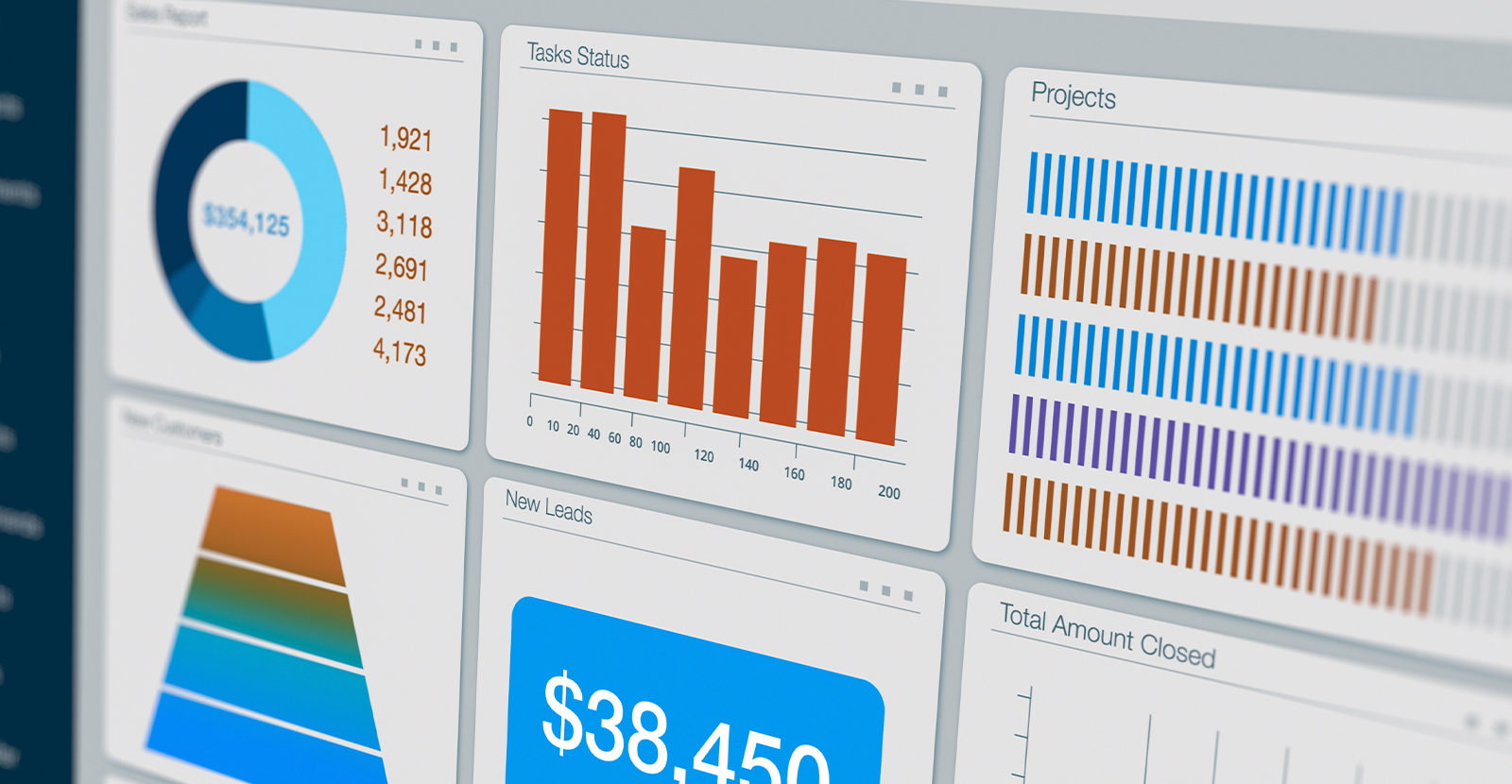 Customer Relationship Management (CRM) platforms have become indispensable tools for businesses of all sizes. Whether you are a small business owner or managing a large enterprise, a good CRM platform can streamline your operations, enhance customer satisfaction, and boost your bottom line. In this blog post, we will explore some of the best CRM platforms available today, including a closer look at how PropelIQ can help your business thrive.
Customer Relationship Management (CRM) platforms have become indispensable tools for businesses of all sizes. Whether you are a small business owner or managing a large enterprise, a good CRM platform can streamline your operations, enhance customer satisfaction, and boost your bottom line. In this blog post, we will explore some of the best CRM platforms available today, including a closer look at how PropelIQ can help your business thrive.
What is a CRM Platform?
A CRM platform is a software solution that helps businesses manage their interactions with current and potential customers. It stores customer information, tracks interactions, and automates various sales and marketing processes. The ultimate goal of a CRM platform is to improve business relationships, increase customer retention, and drive sales growth.Why Do You Need a CRM Platform?

- Centralized Data: CRM platforms centralize all your customer data, making it easily accessible to your team.
- Improved Customer Service: By having all customer interactions recorded, your team can provide personalized and timely support.
- Sales Tracking: CRM platforms help track the sales process from lead generation to closing deals.
- Marketing Automation: Automate your marketing campaigns, track their performance, and refine your strategies.
- Enhanced Collaboration: Team members can collaborate more effectively with shared information and tools.
Top CRM Platforms

1. PropelIQ
PropelIQ stands out as a comprehensive CRM platform designed to meet the needs of businesses looking to streamline their operations and improve customer relationships. Here’s how PropelIQ can help:- User-Friendly Interface: PropelIQ offers an intuitive interface that makes it easy for your team to navigate and use effectively.
- Customizable Dashboards: Tailor the platform to fit your specific business needs with customizable dashboards and reports.
- Integration Capabilities: Seamlessly integrate with other tools and applications you already use, enhancing your workflow.
- Automation Features: Automate routine tasks such as follow-ups, email campaigns, and data entry, freeing up your team to focus on more strategic activities.
- Advanced Analytics: Gain insights into your sales and marketing efforts with advanced analytics and reporting tools.
2. Salesforce
Salesforce is one of the most popular CRM platforms on the market. Known for its scalability and extensive features, Salesforce is suitable for businesses of all sizes.- Cloud-Based: Access Salesforce from anywhere with its cloud-based infrastructure.
- Comprehensive Solutions: Offers solutions for sales, service, marketing, and more.
- AppExchange: Enhance Salesforce with thousands of third-party applications available on the AppExchange.
- Customizable: Highly customizable to fit the specific needs of your business.
- Strong Community Support: Benefit from a large user community and extensive support resources.
3. HubSpot CRM
HubSpot CRM is a great choice for small to medium-sized businesses looking for an easy-to-use and affordable CRM solution.- Free Version Available: Start with a free version that includes basic CRM features.
- Integration with HubSpot Suite: Integrates seamlessly with HubSpot’s marketing, sales, and service tools.
- User-Friendly: Designed with ease of use in mind, making it accessible even for non-technical users.
- Email Tracking: Track email opens and clicks to understand customer engagement.
- Lead Management: Manage leads efficiently with lead scoring and pipeline management features.
4. Zoho CRM
Zoho CRM is another robust platform that offers a wide range of features to help businesses manage their customer relationships effectively.- Affordable Pricing: Zoho CRM offers competitive pricing plans suitable for small and large businesses alike.
- AI-Powered Tools: Leverage artificial intelligence to get predictions and insights.
- Multi-Channel Communication: Engage with customers through email, social media, live chat, and more.
- Customizable Modules: Customize modules and fields to match your business processes.
- Mobile App: Access Zoho CRM on the go with its mobile app.
5. Microsoft Dynamics 365
Microsoft Dynamics 365 combines CRM and ERP capabilities to provide a comprehensive business solution.- Integration with Microsoft Products: Integrates seamlessly with other Microsoft products such as Office 365 and Teams.
- AI and Machine Learning: Use AI and machine learning to gain actionable insights and improve decision-making.
- Scalability: Suitable for large enterprises with complex needs.
- Unified Platform: Combines CRM and ERP capabilities for a unified approach to business management.
- Industry Solutions: Offers solutions tailored to specific industries, including retail, finance, and healthcare.
6. Pipedrive
Pipedrive is a sales-focused CRM platform designed to help sales teams manage their pipelines effectively.- Sales Pipeline Management: Visualize your sales pipeline and track deals through each stage.
- Automation Features: Automate repetitive tasks to save time and increase efficiency.
- Email Integration: Integrates with your email provider to track communications.
- Activity Reminders: Set reminders for follow-ups and other important activities.
- Customizable: Customize the platform to fit your sales process.
7. Freshsales
Freshsales, part of the Freshworks suite, is a CRM platform designed to help sales teams close deals faster.- Built-In Phone and Email: Communicate with leads directly from the platform using built-in phone and email features.
- Lead Scoring: Score leads based on their engagement and activities.
- Visual Sales Pipeline: Manage your sales pipeline with a visual interface.
- AI-Powered Insights: Use AI to get insights and recommendations.
- Automation: Automate routine tasks to focus on selling.
8. Monday.com CRM
Monday.com, known for its project management capabilities, also offers a robust CRM solution.- Customizable Workflows: Create custom workflows to match your sales process.
- Visual Dashboards: Use visual dashboards to track your sales performance.
- Integration: Integrate with various tools and applications to streamline your operations.
- Collaboration Tools: Enhance team collaboration with built-in communication tools.
- Easy to Use: Designed to be user-friendly and easy to set up.
Choosing the Right CRM Platform
 When selecting a CRM platform, consider the following factors:
When selecting a CRM platform, consider the following factors:
- Business Needs: Determine your specific business needs and choose a platform that meets those requirements.
- Ease of Use: Ensure the platform is user-friendly and easy for your team to adopt.
- Scalability: Choose a platform that can grow with your business.
- Integration: Check if the CRM integrates with other tools you use.
- Cost: Consider your budget and choose a platform that offers good value for money.
- Support: Look for a platform that offers reliable customer support.
Conclusion
Choosing the right CRM platform can significantly impact your business’s efficiency and customer satisfaction. PropelIQ, with its user-friendly interface and robust features, is an excellent choice for businesses looking to streamline their operations and enhance customer relationships. However, it’s essential to evaluate all options, such as Salesforce, HubSpot CRM, Zoho CRM, Microsoft Dynamics 365, Pipedrive, Freshsales, and Monday.com CRM, to find the best fit for your specific needs. Investing in the right CRM platform will help you manage your customer relationships effectively, driving growth and success for your business.